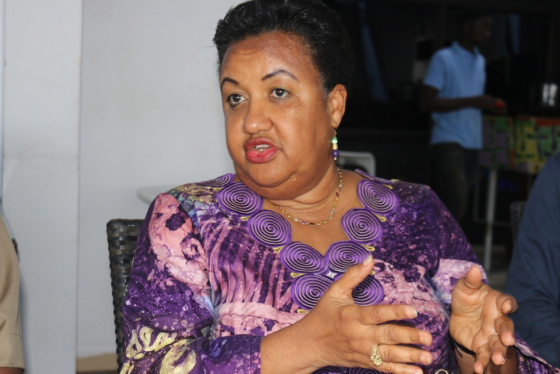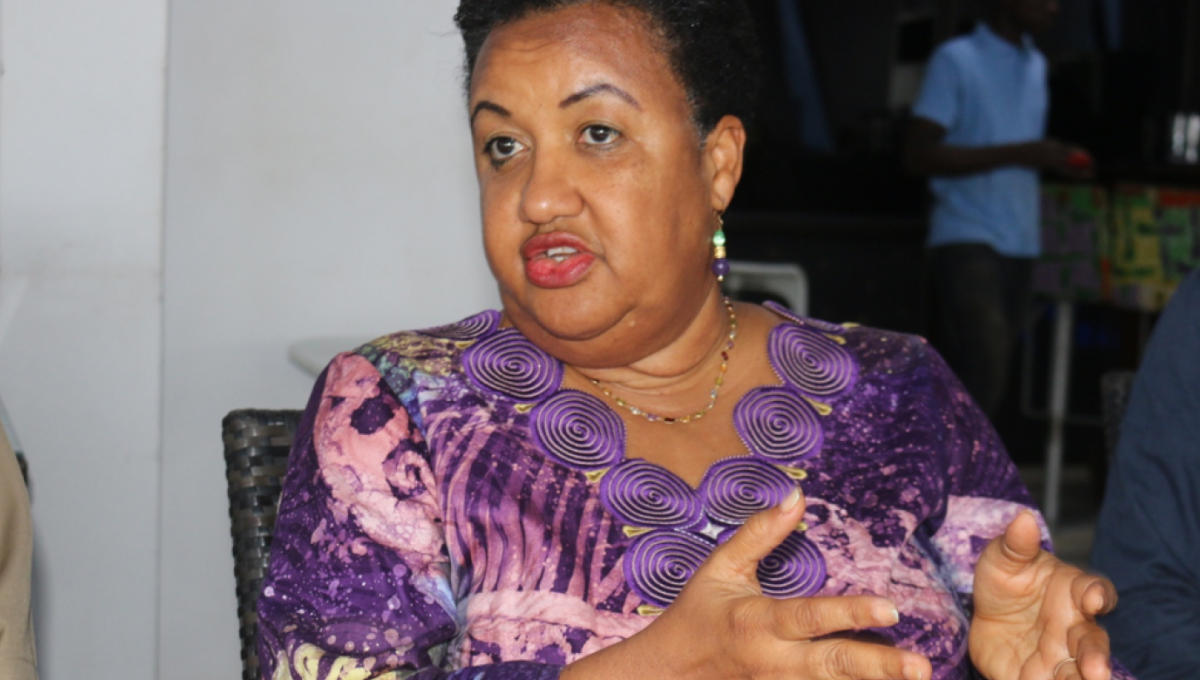Malabo Report: Liberia’s Food Security Improvement Dismal

Agriculture Minister Madam Jeanine M. Cooper.
Liberia has shown dismal progress towards the improvement of agriculture, food, and nutrition security as required under the Comprehensive Africa Agriculture Development Program (CAADP) Malabo framework.
According to CAADP Malabo 3rd biennial report, the country has met just a very few requirements, thus showing a score of 3.39 out of the seven commitments required.
Commitments like the recommitment to the principles and values of the CAADP process, ensuring a national food security framework, enhancing mutual accountability, and enhancing investment in finance are just some of the few requirements met by Liberia. But the elimination of hunger by 2025, ensuring 10 percent of the total national budget for agriculture by the government, boosting intra-African trade in agricultural commodities, enhancing resilience to climate variability, and halving poverty through agriculture by 2025 still remains a very serious challenge for the country.
Rwanda, Morocco, Mali, and Djibouti are the four countries right now on the continent that are on track in implementing the Malabo Declaration.
There are precisely seven commitments that should be met by member countries. These include: ending hunger by 2025; enhancing investment finance in agriculture; a recommitment to the principles and values of the CAADP process; boosting intra-African trade in agriculture commodities; enhancing engagement in climate variability; accountability for action and result; and having poverty reduced by 2025. The report is released after every two years to inform member countries about their performance or results to improve agriculture and food security.
The 2022 edition was launched in Monrovia over the weekend by the Ministry of Agriculture, alongside the Liberia Agriculture Sector Investment Plan (LASIPII).
LASIP II is the country’s framework that domesticates the Malabo Declaration. The framework elapsed in June of this year and has not been supported by the government, according to officials of the Ministry of Agriculture.
The biennial review report is a fundamental instrument that shows outcomes of different agricultural efforts and interventions on the continent, to enable countries to track, measure and report the progress achieved against agreed result areas.
The CAADP Malabo framework mandates every African government to allot 10% of its total national budget annually to accelerate growth in agriculture, in order to obtain 6 percent GDP to boost economies on the continent. According to officials of the Ministry, this was the first time that the Ministry has launched the report to create awareness about the process. Yet, the meeting to review or discuss the report was poorly attended by stakeholders.
In 2003, African leaders met in Maputo, Mozambique at a conference and decided to use agriculture to improve the economies in Africa. Liberia became a signatory to the framework after the country had just emerged from civil war.
After 10 years, in 2013, African leaders hosted another conference in Malabo, Equatorial Guinea. During that meeting, leaders of Africa recommitted to the continent’s food security framework, after having realized little progress on commitments by most African countries.
For more than two decades, despite Liberia having recommitted to the framework, the government is yet to invest in agriculture in line with the Malabo mandate. Support for agriculture still continues to be largely donor-driven.
Former President Ellen Johnson Sirleaf, whose administration enjoyed peace and prosperity for a decade, did not comply with the Malabo Declaration, despite her administration highlighting agriculture as a priority for the Poverty Reduction Strategy.
The PRS was the Sirleaf administration’s development agenda. Sirleaf strove to revamp agriculture with assistance from the international community.
Her successor, President George M. Weah, has also recognized agriculture as pivotal to the development of the country, as inscribed in his administration’s development agenda, the Pro-Poor Agenda for Prosperity and Development (PAPD). But public support for agriculture remains paltry, nearly nonexistent.
The Weah administration has seen a drastic reduction in the budget for agriculture, thereby impeding some of the functions of the Ministry of Agriculture.
There is absolutely no money in the National Budget to subsidize farmers and improve extension deliveries and research. In the 2022 budget, the government allocated only US$1 million to promote farm mechanization. Most assistance for the sector is supported by donor-funded projects.
Speaking during the launch of the report, Acting Deputy Agriculture Minister for Planning and Development, J. Dennis Wiagbe, told participants that the major reason agricultural productivity is still lacking is because of the government’s failure to allot 10 percent of the total national budget for agriculture yearly.
He underscored the need for CSOs to be involved in the advocacy for priority for agriculture in line with the Malabo mandate. According to him, the collection of data to inform decision-makers is still a challenge, though the country appeared to make some level of progress in food security.
He mentioned that enhancing investment in finance, ending hunger, and boosting intra-African trade in agricultural commodities are some of the issues Liberia needs to work on.
Meanwhile, some officials of the Ministry lamented that there has been no support for the country’s food security framework since it was introduced. They said that support from the donors comes with restrictions and, as a result, many of the challenges for agriculture aren’t addressed.
On the other hand, participants of the meeting to discuss the CAADP Malabo framework report have recommended to the Ministry for increased awareness about the Malabo process — not only to stakeholders but also to the local people of the rural communities.
Lucy M. Wesley, a woman farmer, said that access to finance is a very serious challenge for the farmers in the sector. According to her, for women — who play a major role in the sector — and other farmers to access finance, the government must be flexible with the selection processes of qualifying beneficiaries.
Wesley also said that the Ministry needs to intensify education on nutrition for the citizens, particularly for rural people if the country is to reduce malnutrition and stunting rates.



